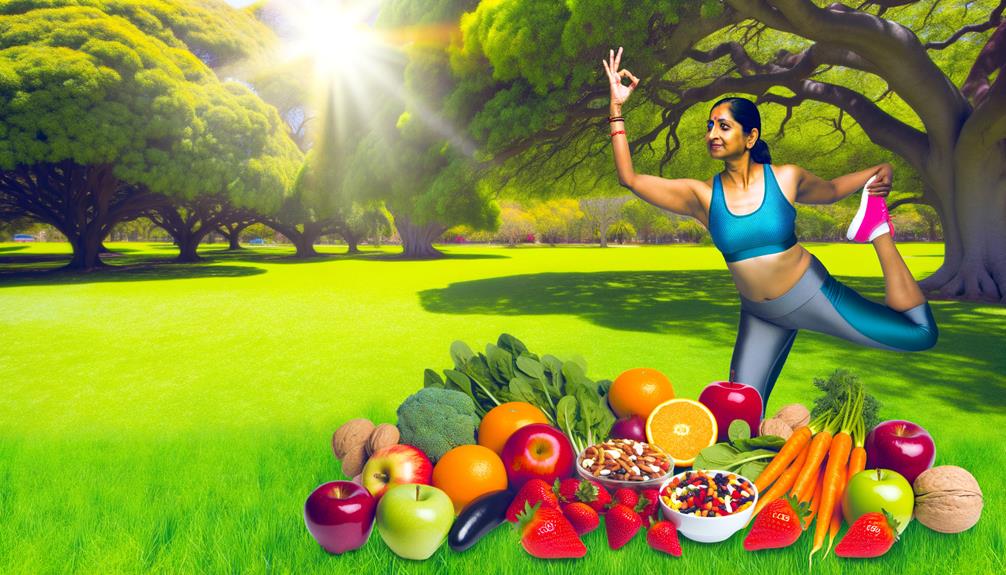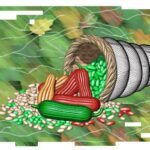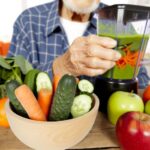Did you know that nearly 10% of professional athletes now follow a plant-based diet? You’re in the company of high performers who’ve discovered the potential benefits of eating greens, grains, and legumes. It’s not just about ethics or environmental concerns; it’s about your body and how you fuel it. As an athlete, you’re aware that every nutrient counts, every meal can affect your recovery, and every snack can either be a step toward victory or a missed opportunity. You might wonder if plants alone can truly meet the rigorous demands of your training and recovery. Stick with us, and you’ll uncover not only the endurance-boosting qualities of a plant-based diet but also how to strategically integrate it into your regimen for peak performance and health.
Key Takeaways
- Plant-based diets can provide essential nutrients for athletic performance, including protein, carbohydrates, omega-3 fatty acids, iron, and vitamin B12.
- Legumes, nuts, seeds, and protein-rich vegetables are excellent sources of plant-based protein.
- Meal planning should include a variety of plant-based foods to ensure a balanced intake of nutrients.
- A plant-based diet can support rapid recovery, improve immune system function, and contribute to overall health benefits for athletes.
Essential Nutrients for Performance
To optimize your athletic performance on a plant-based diet, it’s crucial to focus on incorporating a variety of essential nutrients that fuel your body and aid in recovery. As an athlete, you’re not just eating for pleasure; your diet is your source of power and resilience.
Protein is the cornerstone of muscle repair and growth. Legumes, tofu, and tempeh are powerhouse plant-based sources that can easily fit into your meal plan. Carbohydrates are your main fuel during prolonged sports activities. They’re abundant in whole grains, fruits, and vegetables, providing the energy you need to excel.
Don’t overlook the importance of omega-3 fatty acids. Found in flaxseeds, chia seeds, and walnuts, they support heart health and play a key role in reducing inflammation, which helps hasten your recovery. Iron is another vital nutrient for you as an athlete, necessary for the oxygen transport that keeps you going. Embrace lentils, spinach, and pumpkin seeds to keep your iron levels topped up.
Lastly, vitamin B12 is critical for energy production. Since it’s not readily available in a plant-based diet, fortified foods or supplements are your go-to options to ensure your health and performance don’t falter. Remember, both macro and micronutrients are your allies in achieving athletic excellence.
Plant-Based Protein Sources
Have you considered how diverse and nutritious plant-based protein sources can be, ranging from legumes like lentils and chickpeas to seeds such as chia and hemp? As a plant-based athlete, it’s essential to know that your athletic body thrives when you properly fuel it with a variety of plant proteins. Here’s a snapshot of the power-packed options you have:
- Legumes
- Lentils: A staple in the Vegan Athlete’s Nutrition Handbook for their high protein content.
- Chickpeas: Perfect for salads and hummus, they’re versatile and protein-rich.
- Edamame: Snack on these young soybeans for a quick protein boost.
- Nuts and Seeds
- Almonds: Grab a handful for a nutritious snack.
- Chia Seeds: Sprinkle on oatmeal or blend into smoothies.
- Hemp Seeds: Known for their omega-3 fatty acids and protein.
- Protein-Rich Vegetables and Grains
- Spinach: Easy to add to smoothies or salads.
- Quinoa: A complete protein, ideal for main dishes.
- Broccoli: Perfectly paired with other plant sources of protein in stir-fries.
These foods may even give your athletic performance an edge, as they boost recovery and improve overall health. Diversify your plate and you’ll find plant protein can more than meet your needs.
Meal Planning Strategies
Understanding the variety of plant-based proteins available, let’s now explore how to effectively plan your meals to optimize your athletic performance and recovery. As you step into this journey, think of this as a comprehensive guidebook for anyone looking to harness the power of plant-based nutrition. Sample meal plans are instrumental in ensuring you’re eating to peak abilities.
Consider how calories fuel a body, especially one as active as yours. A mix of legumes, tofu, tempeh, and seitan will keep your protein intake robust. Don’t forget the colorful array of fruits and veggies—your arsenal for vitamins, minerals, and antioxidants. Whole grains like quinoa and oats are your allies for that sustained energy release essential for endurance.
Planning ahead with flavorful and fueling vegan options means you’re never caught off-guard. Pre-portioned meals ready to go will support you through the busiest of training days. And remember, food adjustments can impact your performance significantly—tune into your body’s responses.
As you draft meal plans to create a routine, think of how athletes eat to fuel their bodies and spirits. Each delicious and nutritious plant-based meal is a step towards your goals. Serve your body well, and it will serve you on the field, the court, or the track.
Recovery and Plant-Based Diets
Embracing a plant-based diet is not just about meeting your nutritional needs—it’s a powerful way to speed up recovery times and elevate your athletic performance. As the latest research in sports nutrition shows, athletes who use plants as their primary food source tend to experience rapid recovery. This is because a diet rich in key macro and micronutrients found in plants supports your body’s natural healing processes.
Here’s how a plant-based regimen offers the greatest advantages for recovery:
- Enhanced Nutrient Intake
- Higher consumption of vitamins and antioxidants
- Anti-inflammatory properties of fruits and vegetables
- Abundance of minerals like magnesium and potassium for muscle repair
- Efficient Energy Management
- Complex carbohydrates for sustained energy
- Optimal balance of proteins for muscle regeneration
- Fiber-rich foods aiding in digestion and nutrient absorption
- Holistic Health Benefits
- Strengthened immune system to prevent illness
- Improved cardiovascular health for better endurance
- Better hydration from water-rich plant foods
Supplements for Vegan Athletes
As you commit to a plant-based athletic lifestyle, considering targeted supplements like B12 and iron can be vital to maintaining your competitive edge and ensuring your body gets all the nutrients it needs. This athlete’s guide to supplements for vegan athletes is crafted to support your journey and help you optimize your health.
Plant-based athletes like you may require additional nutrients to support an athletic body. B12 is crucial for nerve function and the creation of red blood cells, while iron is essential for oxygen transport. Since these nutrients can be challenging to obtain from a plant-based regimen alone, supplements become an integral part of a complete vegan athlete’s diet.
Beyond B12 and iron, incorporating omega-3 fatty acids can aid in reducing inflammation and promoting heart health. Plant-based protein powders can also be a convenient source of essential amino acids, assisting in muscle repair and growth. For bone health, consider calcium and vitamin D supplements, especially if your exposure to sunlight is limited.
Frequently Asked Questions
What Does a Plant-Based Athlete Eat in a Day?
You’ll fuel up on energy sources like quinoa and beans, hydrate with coconut water, snack on nuts, and balance meals for vitamin and mineral needs, ensuring your caloric intake supports your active lifestyle.
Is a Plant-Based Diet Best for Athletes?
You’ll find optimal nutrition with a plant-based diet, enhancing performance benefits, reducing recovery times, and supporting muscle growth. Ensure adequate iron intake, nutrient density, and omega-3 sources to maintain energy levels and hydration needs.
What Form of Protein Is Recommended for a Plant-Based Athlete?
You should choose diverse protein sources, like legumes and tofu, to aid muscle recovery. Consider protein timing and supplementation for optimal amino acids absorption. Be mindful of digestibility and allergen considerations in meal planning.
What Are the Dietary Guidelines for Plant-Based Diet?
You should prioritize whole foods, ensuring nutrient density in every meal. Focus on caloric intake, micronutrient balance, and omega harmony. Boost iron absorption, stay hydrated, time your meals, and strategize supplementation for optimal health.







